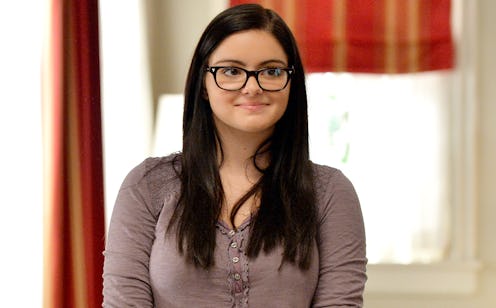
It's moderately mind blowing how many ways you can tackle parenthood. Some parents push extracurriculars and pristine grades with gusto, while others take a more chilled-out approach, leaving room for their kids to choose their own adventures. My parents followed the latter camp, for better or for worse. As a result, I gravitated way harder to the artsier and more sedentary activities. Although I loved Mia Hamm as much as any '90s gal, I favored stuff like starting a zine over joining soccer club as a youth. There are some reasons kids who weren't into sports are actually better off, in my decidedly biased opinion.
It's weird, too, how even though we have much more ownership and financial freedom as adults, you don't run into many of them taking introductory ballet courses. It's more of a situation where we begrudgingly sign up for pure barre classes or join a gym and flail around on the elliptical a few times a week. As adults, exercise seems reserved as a necessary evil with "recreational sports" serving as some creative punishment for the entire office. Although those of us who grew up un-athletic may be pretty useless on the company T-ball league, there are some major benefits for a sports-less childhood:
You learned how to work as an individual
Without a whole crew of folks in sports outfits matching yours, you had to learn early on how to stand on your own. In the same vein, you learned how to work towards and achieve your goals without much help from others.
You learned teamwork on a more mental plane
Although there was little to learn participating in classroom-organized group projects, we honed teamwork skills through more intellectual and applicable experiences. Like office-organized group projects, and organizing friend group trips like a boss.
You have a more complicated, sophisticated sense of self
Nobody ever told you where to stand on a field, literally or figuratively. It was up to you to establish an identity on your own.
You had space to explore other fields
Without the pressure of upcoming "tourneys," or whatever you call them, you could check out other extracurriculars, be it in the creative field or something more scientific. You didn't have regular practice to clutter your youth agenda after school, making room to check out how computer coding works or — IDK — experiment with cigarettes? This freedom made you a more interesting person.
You're less competitive
Perhaps you found a little inspiration going head-to-head with another student to lead the class with the best grade, but probably not so much. It's good to be good at what you do and work hard to get there, but you don't lose sight of staying healthy and balanced in doing so. You're probably less vengeful, too.
You're good at entertaining yourself
What else is there to do in your mandatory gym class kickball game than sit in the outfield splitting blades of grass and pretending it's part of a secret quest to maintain intergalactic peace? Adults can do this passing time in lines, doing laundry, listening to sports meetings play loudly over bar televisions. Literally a superpower you develop when not sweating more than necessary during your youth.
You can harmoniously exist with the outcasts
Guess who else is out there striving to keep the universal serenity safe?
You easily befriend people from other generations
This was a survival tactic for eluding mandatory pep rallies: Forcing friendship on art teachers and other adult allies. Their classrooms were your safe place so you finessed basic conversational survival skills a while ago. This continues to pay off, as it seems other generations have this odd habit of coexisting with us for a long time, forcing insight. Insight that's good at any age.
Images: ABC; Giphy(8)